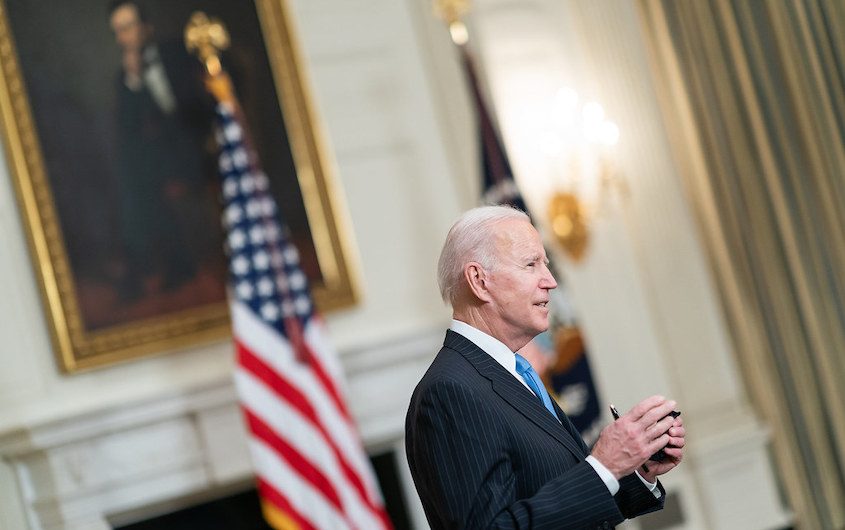
The White House via Flickr
Transatlantic Economic Relations under the Biden Administration

Peter S. Rashish
Vice President; Director, Geoeconomics Program
Peter S. Rashish, who counts over 30 years of experience counseling corporations, think tanks, foundations, and international organizations on transatlantic trade and economic strategy, is Vice President and Director of the Geoeconomics Program at AICGS. He also writes The Wider Atlantic blog.
Mr. Rashish has served as Vice President for Europe and Eurasia at the U.S. Chamber of Commerce, where he spearheaded the Chamber’s advocacy ahead of the launch of the Transatlantic Trade and Investment Partnership. Previously, Mr. Rashish was a Senior Advisor for Europe at McLarty Associates, Executive Vice President of the European Institute, and a staff member and consultant at the International Energy Agency, the World Bank, UN Trade and Development, the Atlantic Council, the Bertelsmann Foundation, and the German Marshall Fund.
Mr. Rashish has testified before the House Financial Services Subcommittee on International Monetary Policy and Trade and the House Foreign Affairs Subcommittee on Europe and Eurasia and has advised three U.S. presidential campaigns. He has been a featured speaker at the Munich Security Conference, the Aspen Ideas Festival, and the European Forum Alpbach and is a member of the Board of Directors of the Jean Monnet Institute in Paris and a Senior Advisor to the European Policy Centre in Brussels. His commentaries have been published in The New York Times, the Financial Times, The Wall Street Journal, Foreign Policy, and The National Interest, and he has appeared on PBS, CNBC, CNN, NPR, and the BBC.
He earned a BA from Harvard College and an MPhil in international relations from Oxford University. He speaks French, German, Italian, and Spanish.
Be careful what you wish for?
In this commentary for the European Policy Centre in Brussels, Geoeconomics Program Director Peter Rashish argues that a U.S.-EU approach to China that leaves some discretion to either side and puts the promotion of common geoeconomic interests in the headline, rather than competition with Beijing, seems possible now with the arrival of the Biden administration. There should also be room for progress reconciling trade and climate policies and coordinating trade enforcement. While there are a number of ongoing frictions in the bilateral economic relationship—mainly over digital issues—these should not prevent a broader transatlantic alignment as along as the EU considers such cooperation to be compatible with its goal of “open strategic autonomy.”
This commentary was originally published by the European Policy Center on April 6, 2021.








